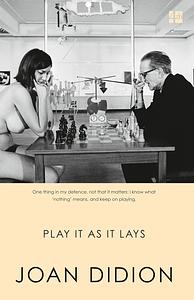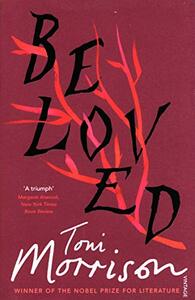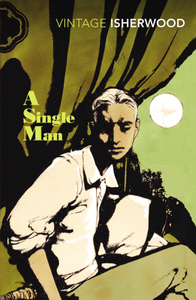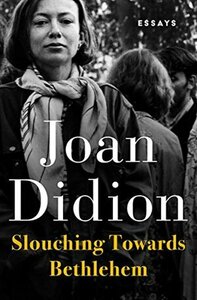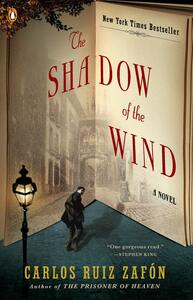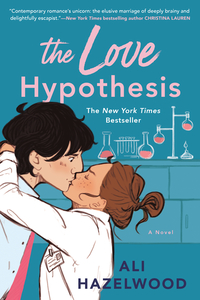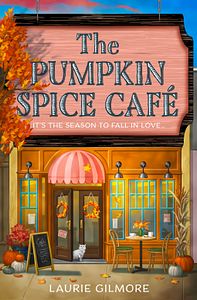You need to sign in or sign up before continuing.
Take a photo of a barcode or cover
_coco_'s Reviews (157)
I wasn’t sure if I enjoyed it much at first but I think as the book unravelled I found it more emotional and blunt, and I really liked that. There were emotions and feelings and listlessness captured that can only come from a place of personal understanding. It withheld and gave information well, and the writing style was very unique. A disorienting and bleak book.
Really loved the writing; it was not like any style I have read before. The characters were all excellent. Paul D was loveable and felt almost like the reader peering in, Denver’s development was rewarding, and Sethe’s rather tragic life was written with great empathy and kindness. A sad book, no doubt, about people trying to live when they are not given the space to.
I think the pacing threw me off a little bit - I enjoyed most the slow domestic unravelling of the story and thought it sped up too much in the last third. I think this also meant that the final parts of the book weren’t as moving for me as they were intended to be, and I felt I had connected most with the characters earlier in the book.
Very glad I read, and something quite different to my usual reads.
I think the pacing threw me off a little bit - I enjoyed most the slow domestic unravelling of the story and thought it sped up too much in the last third. I think this also meant that the final parts of the book weren’t as moving for me as they were intended to be, and I felt I had connected most with the characters earlier in the book.
Very glad I read, and something quite different to my usual reads.
This book was clearly extensively researched, and written from a place of personal interest and passion. I really enjoyed the unique perspective of being raised to unquestioningly endorse Zionism in a Hindu family and Mishra's perceptions of - and later disillusionment with - the India's relationship to Israel. I liked the mix of sources, from academic research to novels and films and I found I learnt in much more detail the way in which the Holocaust was utilised to construct an image of Jewishness in Western consciousness.
However, I think it felt at times that the book didn't have much forward momentum. Despite the division of the book into parts, they didn't feel particularly distinct. I think much of the crucial analysis could have been reduced to an excellent 30-page journal article, or a single chapter within the book. The ongoing summarising of other sources and listing of quotes without much additional analysis diluted Mishra's own interesting additions, and made me want to just turn to the source materials instead.
What surprised and disappointed me most was that this book was not really focused on 'the world after Gaza' at all. I imagine this is more a fault of publishing and marketing than the writer himself, but the book largely felt like an analysis of the memory of the Holocaust, with an introduction and epilogue tacked on to relate it to the current conflict and sell more books. It left me turning each page wondering when exactly we would discuss the future prospects of this crisis, or even when there would be an analysis of historical Israel-Palestine conflict in the same detail as World War II had been discussed, only to realise this was not going to come.
The epilogue was void of virtually any hope, which is likely not far off the truth but felt misaligned with the rest of the narrative about the potential - even if emerging from violence and extensive oppression - for some form of liberation.
This review makes it sound like I disliked the book a lot more than I did. I genuinely did find it interesting and engaging, but wish that it had not been presented in the format it had, and feel that the moments of unique insight and analysis were undermined by pages of information and arguments I already had an awareness of.
However, I think it felt at times that the book didn't have much forward momentum. Despite the division of the book into parts, they didn't feel particularly distinct. I think much of the crucial analysis could have been reduced to an excellent 30-page journal article, or a single chapter within the book. The ongoing summarising of other sources and listing of quotes without much additional analysis diluted Mishra's own interesting additions, and made me want to just turn to the source materials instead.
What surprised and disappointed me most was that this book was not really focused on 'the world after Gaza' at all. I imagine this is more a fault of publishing and marketing than the writer himself, but the book largely felt like an analysis of the memory of the Holocaust, with an introduction and epilogue tacked on to relate it to the current conflict and sell more books. It left me turning each page wondering when exactly we would discuss the future prospects of this crisis, or even when there would be an analysis of historical Israel-Palestine conflict in the same detail as World War II had been discussed, only to realise this was not going to come.
The epilogue was void of virtually any hope, which is likely not far off the truth but felt misaligned with the rest of the narrative about the potential - even if emerging from violence and extensive oppression - for some form of liberation.
This review makes it sound like I disliked the book a lot more than I did. I genuinely did find it interesting and engaging, but wish that it had not been presented in the format it had, and feel that the moments of unique insight and analysis were undermined by pages of information and arguments I already had an awareness of.
This is probably the closest to a five star I will ever give a book. It was so incredibly beautiful, and funny, and sad, and intelligent.
I knew it was going to be excellent from the first page, and it maintained that throughout. The prose was varied and blunt and poetic and observant. George felt real - he was flawed and loveable, and his desire to be known and seen felt palpable. His self-consciousness was depicted throughout so tenderly, and when it lifted it was always moving. The little academic tangents were fitting and enjoyable and the relationships were so fulfilling. The time span of the book - one day - was unexpected but worked so well to capture nuanced glimpses of grief and ecstatic peaks of joy.
It is rare that a book so short leaves such a mark.
I knew it was going to be excellent from the first page, and it maintained that throughout. The prose was varied and blunt and poetic and observant. George felt real - he was flawed and loveable, and his desire to be known and seen felt palpable. His self-consciousness was depicted throughout so tenderly, and when it lifted it was always moving. The little academic tangents were fitting and enjoyable and the relationships were so fulfilling. The time span of the book - one day - was unexpected but worked so well to capture nuanced glimpses of grief and ecstatic peaks of joy.
It is rare that a book so short leaves such a mark.
I really enjoyed the first third of this book. Didion is able to write these accounts in a way where she blends into the background and I tend to forget someone is writing at all, and I think that is a particularly unique style to the essays I liked most.
I thought this part of the book was not only the best written, but also the most diverse. ‘John Wayne: A Love Song’ was surprising moving, and one that really stuck out. Both ‘Comrade Laski’ and ‘Marrying Absurd’ were short but funny and bleak and endearing, particularly the latter.
I think it was in the rest of the collection that I found the writing and content less appealing. In part, I think it is stronger and more engaging to hear about the stories of others by an excellent writer than to be handed essay after essay about themselves. There was a mix of strange patriotism and complete incessant bleakness towards life and the US and purpose in this section, which worked for the first one or two but afterwards became a familiar formula, which I think didn’t work when read back-to-back. They were by no means bad but paled in comparison to the first part of the book.
Of her more personal essays, I found ‘Los Angeles Notebook’, ‘On Self-Respect’, and ‘Goodbye to All That’ most engaging.
I thought this part of the book was not only the best written, but also the most diverse. ‘John Wayne: A Love Song’ was surprising moving, and one that really stuck out. Both ‘Comrade Laski’ and ‘Marrying Absurd’ were short but funny and bleak and endearing, particularly the latter.
I think it was in the rest of the collection that I found the writing and content less appealing. In part, I think it is stronger and more engaging to hear about the stories of others by an excellent writer than to be handed essay after essay about themselves. There was a mix of strange patriotism and complete incessant bleakness towards life and the US and purpose in this section, which worked for the first one or two but afterwards became a familiar formula, which I think didn’t work when read back-to-back. They were by no means bad but paled in comparison to the first part of the book.
Of her more personal essays, I found ‘Los Angeles Notebook’, ‘On Self-Respect’, and ‘Goodbye to All That’ most engaging.
This was so unbelievably beautiful. I can’t believe a book so short could hold so much complexity and development. The dialogue was unique and funny, the writing was unlike any other books I have read. Pinochet’s perspective was dry and humorous - I didn’t expect that at all - and the love within this book felt tangible. The characters’ flaws were never played down and yet were always loveable. The final few pages were so moving, and all I wanted to do upon finishing this book was read it again.
I can see why people would enjoy but it just wasn’t for me. It was all very fantastical and the lack of realism kind of brought it down for me. I am unsure if the identity of the mystery figure was meant to be a big twist - I figure not - but I guessed it 30 pages in which was a bit underwhelming. I appreciated how many characters the author was able to flesh out, but it felt a little repetitive with each just recounting their own version of events and then sort of disappearing into the background again. I feel there is a lot to enjoy about this book honestly and I was just the wrong person for it ✊✊
Somehow so much happened and none of it was interesting. Everyone was filled with so much murderous intent all the time, god forbid an issue is resolved without killing someone. The writing itself was really decent for a crime book though, so yay on that front.
Lowkey giggled and kicked my feet - very silly and oh my gosh I get it he is very tall and big please stop, but a fun time
